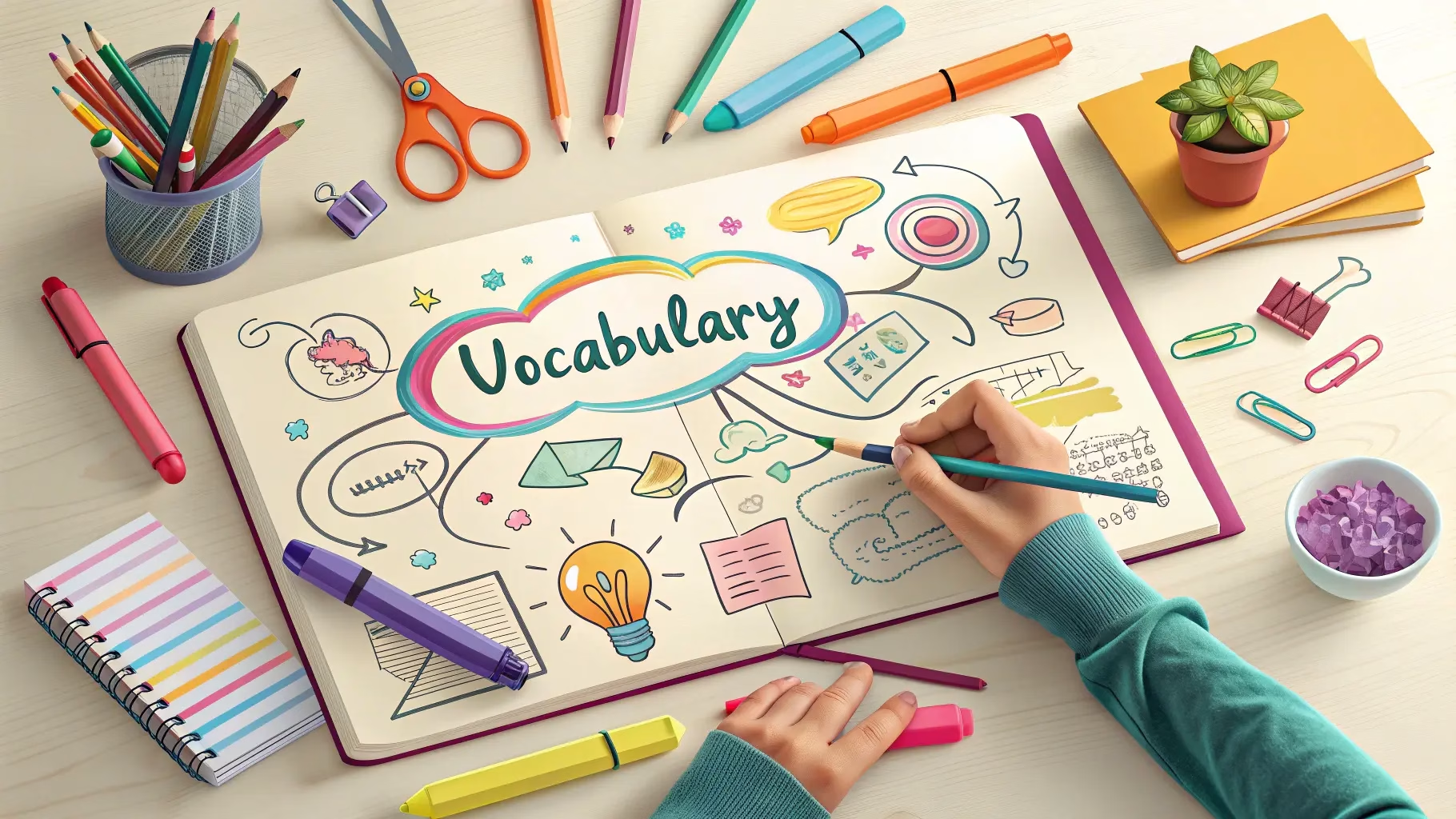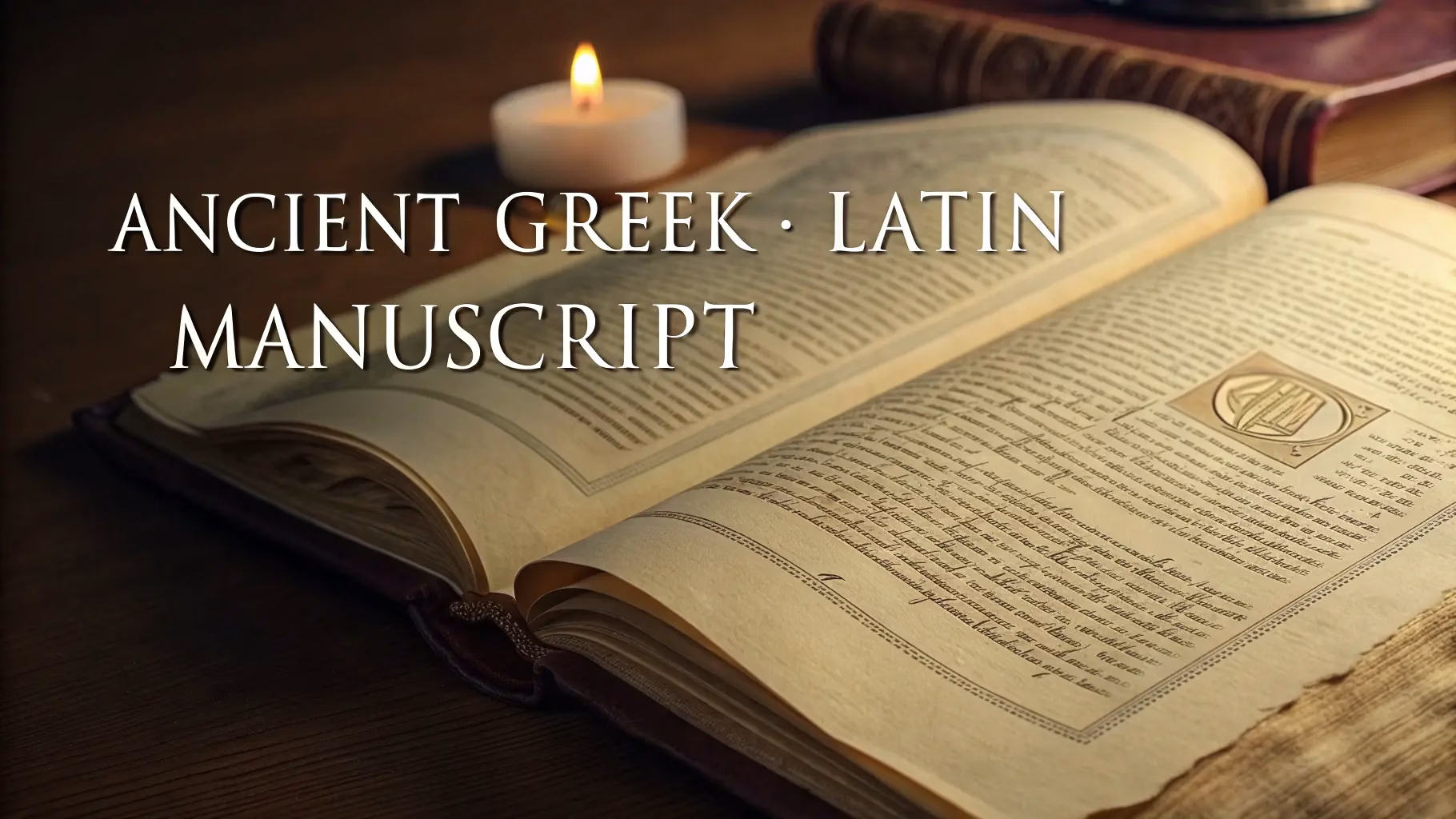Have you ever been in a conversation where someone used a word that made you think, “Wow, they sound incredibly smart”? Learning difficult English words with meanings isn’t just about showing off – it’s about expressing yourself more precisely and beautifully. Therefore, mastering advanced vocabulary opens doors to better communication, higher test scores, and more confident conversations.
In this blog, I’ll share 20+ fascinating words that will transform your English vocabulary. Moreover, you’ll discover simple memory tricks to remember these words forever. Additionally, we’ll explore how to use these impressive terms in real-life situations without sounding pretentious.
Why Learn Difficult English Words?
Building an advanced English words list isn’t just academic exercise – it’s practical magic for your communication skills. Furthermore, research shows that people with richer vocabularies earn higher salaries and enjoy better career opportunities.
Here are compelling reasons to expand your vocabulary:
Enhanced Expression: Complex emotions and ideas need precise words. However, basic vocabulary often falls short when you want to articulate nuanced thoughts.
Professional Advantage: Using sophisticated language in emails, presentations, and interviews demonstrates intelligence and education. Therefore, employers often associate strong vocabulary with leadership potential.
Cultural Connection: Many uncommon English vocabulary words carry rich cultural histories. Additionally, understanding these words helps you appreciate literature, films, and sophisticated conversations.
Cognitive Benefits: Learning new words actually rewires your brain. Moreover, studies indicate that vocabulary expansion improves memory, critical thinking, and creativity.

Top 20 Difficult But Cool English Words (With Meanings)
Let’s dive into our carefully curated collection of difficult English words with meanings. Each word includes practical examples and memory tricks to help you remember them effortlessly.
Fancy English Words to Use in Writing
🌸 1. EPHEMERAL (ih-FEM-er-uhl)
Quick Definition: Lasting for a very short time; temporary
📝 Example: “The beauty of cherry blossoms is ephemeral, making their spring appearance even more precious.”
🧠 Memory Hack: Think “F-M-R-L” = “Few Moments, Really Limited”
🔥 Cool Fact: This word comes from Greek mythology – it described creatures that lived only one day!
☕ 2. SERENDIPITY (ser-uhn-DIP-i-tee)
Quick Definition: A pleasant surprise; finding something good unexpectedly
📝 Example: “Meeting my future business partner at that coffee shop was pure serendipity.”
🧠 Memory Hack: “Serene + Dip + Tea” = calmly discovering something sweet
📚 Origin Story: Coined by writer Horace Walpole in 1754 from a Persian fairy tale!
👑 3. QUINTESSENTIAL (kwin-tuh-SEN-shuhl)
Quick Definition: Representing the most perfect example of something
📝 Example: “Pizza is the quintessential comfort food for college students.”
🧠 Memory Hack: “Queen + Essential” = the most royal example
⭐ Pro Tip: Use this word when you want to say “the absolute best example of…”
📱 4. UBIQUITOUS (yoo-BIK-wi-tuhs)
Quick Definition: Present everywhere at the same time
📝 Example: “Smartphones have become ubiquitous in modern society.”
🧠 Memory Hack: “You-Be-Quit-Us” = you can’t quit us because we’re everywhere
💡 Personal Note: I use this word when describing how WiFi is literally everywhere now!
🍯 5. MELLIFLUOUS (muh-LIF-loo-uhs)
Quick Definition: Sweet-sounding; flowing like honey
📝 Example: “Her mellifluous voice made even the boring lecture sound interesting.”
🧠 Memory Hack: “Mellow + Flow + Us” = smooth flowing sound
🎵 Fun Use: Perfect for describing beautiful singing voices or smooth jazz!
Tricky Vocabulary Words You Should Know
🕵️ 6. SURREPTITIOUS (sur-uhp-TISH-uhs)
What it means: Done secretly or stealthily
📝 In action: “He took a surreptitious glance at his phone during the meeting.”
🧠 Remember it: “Sir + Repetitious” = Sir repeatedly sneaking around
🎬 Movie moment: Think of spy movies – everything they do is surreptitious!
🔍 7. PERSPICACIOUS (pur-spi-KAY-shuhs)
What it means: Having keen insight; mentally sharp
📝 In action: “The detective’s perspicacious observations solved the case quickly.”
🧠 Remember it: “Perspective + Spacious” = wide perspective that sees everything
🏆 Impress factor: Use this instead of just saying “smart” – sounds 10x more intelligent!
📏 8. SESQUIPEDALIAN (ses-kwi-pi-DAY-lee-uhn)
What it means: Using long words; characterized by long words
📝 In action: “His sesquipedalian writing style impressed professors but confused classmates.”
🧠 Remember it: This word itself is long – it describes itself! (Meta, right?)
😂 Irony alert: The word for “using long words” is… a really long word!
🎭 9. GRANDILOQUENT (gran-DIL-uh-kwuhnt)
What it means: Using fancy language to impress people
📝 In action: “The politician’s grandiloquent speech sounded impressive but said very little.”
🧠 Remember it: “Grand + Eloquent” = grandly speaking
⚠️ Warning: Don’t become grandiloquent yourself when using this word!
🎪 10. SUPERCALIFRAGILISTICEXPIALIDOCIOUS (soo-per-kal-uh-fraj-uh-lis-tik-eks-pee-al-uh-DOH-shuhs)
What it means: Extraordinarily wonderful (thanks, Mary Poppins!)
📝 In action: “The fireworks display was absolutely supercalifragilisticexpialidocious!”
🧠 Remember it: Break it down: “Super + Cali + Fragile + Mystic + Expiali + Docious”
🎬 Fun fact: Disney created this word in 1964, and it’s now in real dictionaries!
Beautiful English Words With Meanings
✨ 11. ETHEREAL (ih-THEER-ee-uhl)
The magic: Extremely delicate; heavenly or spiritual
📝 Picture this: “The ethereal music transported listeners to another world.”
🧠 Lock it in: “Ether + Real” = like floating in air
🌙 Perfect for: Describing moonlight, soft music, or dreamy moments
💡 12. LUMINOUS (LOO-muh-nuhs)
The magic: Full of light; brilliant or glowing
📝 Picture this: “Her luminous smile brightened everyone’s day.”
🧠 Lock it in: “Lumi” sounds like “illuminate”
⚡ Upgrade your vocab: Instead of “bright,” say “luminous” – sounds way cooler!
🎵 13. SONOROUS (son-AWR-uhs)
The magic: Deep, full, and impressive sound
📝 Picture this: “The professor’s sonorous voice commanded attention in the lecture hall.”
🧠 Lock it in: “Son + Roar + Us” = son’s roaring voice reaches us
🎤 Real talk: Ever notice how radio announcers have sonorous voices? That’s why!
🔥 14. INCANDESCENT (in-kuhn-DES-uhnt)
The magic: Glowing with heat; brilliant or passionate
📝 Picture this: “Her incandescent performance earned a standing ovation.”
🧠 Lock it in: “In + Candle + Scent” = glowing like a candle
💡 Did you know? Those old light bulbs were called incandescent bulbs!
🕸️ 15. GOSSAMER (GOS-uh-mer)
The magic: Extremely light, delicate, or tenuous
📝 Picture this: “The gossamer threads of the spider’s web caught the morning dew.”
🧠 Lock it in: “Goose + Summer” = light as summer goose down
🕷️ Nature fact: Originally meant “goose summer” – referring to spider webs that appear in warm weather!
More Cool English Words With Deep Meanings
🌧️ 16. PETRICHOR (PET-ri-kawr)
- What’s special: The pleasant smell of earth after rain
- Use it like this: “Walking through the garden, she breathed in the fresh petrichor.”
- Brain trick: “Pet + Rick + Or” = your pet Rick loves this smell
- Mind = blown: Scientists only named this smell in 1964, but humans have loved it for thousands of years!
🏠 17. HIRAETH (HEER-eyeth)
- What’s special: Deep longing for a place you can never return to
- Use it like this: “Looking at old photos filled him with hiraeth for his childhood home.”
- Brain trick: Welsh word meaning “here + earth” = longing for this earth/place
- Cultural gem: This untranslatable Welsh word captures homesickness perfectly!
👀 18. PHOSPHENES (FOS-feenz)
- What’s special: The colors you see when you close your eyes and press them
- Use it like this: “The phosphenes danced behind her eyelids as she rubbed her tired eyes.”
- Brain trick: “Photos + Scenes” = picture scenes behind closed eyes
- Science is cool: These aren’t real lights – your brain creates them when pressure hits your retina!
☀️ 19. APRICITY (uh-PRIS-i-tee)
- What’s special: The warmth of winter sunshine
- Use it like this: “She sat by the window, enjoying the apricity on the cold December morning.”
- Brain trick: “A + Pricy + Tea” = expensive tea warmed by winter sun
- Why I love this: Finally, a word for that cozy feeling of sun on your face in winter!
✈️ 20. WANDERLUST (WON-der-luhst)
- What’s special: Strong desire to travel and explore
- Use it like this: “Her wanderlust led her to visit 30 countries before turning 25.”
- Brain trick: “Wander + Lust” = lusting to wander
- Instagram ready: This word is basically made for travel captions!
💬 Quick Challenge: Which of these 5 words describes you best? Drop your answer in the comments!
Hard-to-Spell English Words That Confuse Everyone
Even native speakers struggle with these hard spelling words in English. Furthermore, mastering their spelling will significantly boost your writing confidence.
| Word | Common Misspelling | Memory Trick |
|---|---|---|
| Necessary | Neccessary | One Collar, Two Sleeves (1 c, 2 s) |
| Conscientious | Consciencious | Science in the middle |
| Rhythm | Rythm | Remember “thy” in the middle |
| Entrepreneur | Entrepeneur | “Pre” comes before “neur” |
| Definitely | Definately | “Finite” is in the middle |

Student learning difficult English words with meanings using notebook and highlighting
How to Use These Words in Real Life
Learning complex English words with meaning is only half the battle. Additionally, using them appropriately requires practice and finesse.
In Conversations: Start by using one new word per week. Moreover, practice with friends who appreciate good vocabulary. However, avoid using multiple difficult words in one sentence – it sounds unnatural.
In Writing Essays: These english words to sound smart work beautifully in academic writing. Furthermore, they demonstrate sophisticated thinking to professors and colleagues. Nevertheless, ensure each word serves a specific purpose.
In Job Interviews: Use one or two impressive words naturally during your responses. Additionally, this showcases your communication skills without overwhelming the interviewer. Therefore, practice beforehand to sound confident and genuine.
Quiz Time – Test Your Vocabulary!
Test your knowledge of these difficult english words with meanings and sentences! Choose the best answer for each question.
Lets us know How much you scored in comments.
FAQ – Difficult English Words Explained
What are the hardest English words to spell? The hardest English words to spell include “hippopotomonstrosesquippedaliophobia” (fear of long words), “pneumonoultramicroscopicsilicovolcanoconiosism,” and “supercalifragilisticexpialidocious.” However, everyday words like “necessary,” “rhythm,” and “entrepreneur” also challenge many writers.
What are some fancy English words with simple meanings? Many impressive words have straightforward meanings. For example, “luminous” simply means “bright,” “ephemeral” means “temporary,” and “ubiquitous” means “everywhere.” Therefore, learning these cool english words with deep meanings helps you express simple ideas more elegantly.
How can I remember difficult vocabulary words? Use memory tricks like breaking words into smaller parts, creating visual associations, and practicing with example sentences. Additionally, try using new words in conversations within 24 hours of learning them. Furthermore, connecting words to personal experiences makes them stick better.
What is the longest word in English? The longest word in most dictionaries is “pneumonoultramicroscopicsilicovolcanoconiosism” (45 letters), a lung disease caused by inhaling fine silica dust. However, “hippopotomonstrosesquippedaliophobia” (36 letters) – ironically meaning fear of long words – is more commonly discussed. Moreover, many people mistakenly think “supercalifragilisticexpialidocious” is the longest, but it’s actually only 34 letters.

Word Complexity Table
| Difficulty Level | Examples | Usage Tips |
|---|---|---|
| Beginner-Friendly | Serendipity, Wanderlust | Perfect for daily conversations |
| Intermediate | Ephemeral, Luminous | Great for writing and presentations |
| Advanced | Perspicacious, Grandiloquent | Use sparingly in formal contexts |
| Expert Level | Sesquipedalian, Surreptitious | Best for academic or literary writing |
Memory Techniques for Tricky Vocabulary Words
Visual Association Method: Connect each word with a vivid mental image. For instance, imagine “ephemeral” as morning dew disappearing in sunlight. Therefore, your brain creates stronger neural pathways when combining words with pictures.
Root Word Analysis: Many weird and difficult english words you never knew come from Latin or Greek roots. Additionally, understanding these origins helps you decode similar words. For example, “luc/lum” means light, appearing in “luminous,” “lucid,” and “illuminate.”
Story Creation Technique: Build short stories using multiple new words together. Moreover, this method helps you remember several words simultaneously while understanding their contexts.
Spaced Repetition: Review new words at increasing intervals: after one day, three days, one week, and one month. Furthermore, this scientifically-proven method transfers words from short-term to long-term memory.

Using Advanced Vocabulary in Different Contexts
Academic Writing: These hard english words for students with meaning elevate essay quality significantly. However, ensure each word serves a specific purpose rather than simply impressing readers. Additionally, balance sophisticated vocabulary with clear communication.
Creative Writing: Words like “ethereal,” “gossamer,” and “luminous” paint vivid pictures in readers’ minds. Furthermore, they help create atmospheric descriptions that transport readers into your story world.
Professional Communication: Choose words that enhance clarity rather than obscure meaning. Moreover, words like “quintessential” and “ubiquitous” work well in business contexts because they’re impressive yet widely understood.
Social Media: Use these words sparingly in captions to stand out from typical posts. Additionally, explaining interesting words in your content can engage followers and demonstrate your knowledge.
Etymology: The Stories Behind Complex Words
Understanding word origins makes list of difficult english words with simple explanation more memorable and meaningful.
Hippopotomonstrosesquippedaliophobia combines Greek roots: “hippo” (horse), “potamo” (river), “monstro” (monster), “sesquipedalian” (long words), and “phobia” (fear). Therefore, it literally means “fear of river-horse-monster-long-words” – quite ironic for describing fear of long words!
Serendipity was coined by Horace Walpole in 1754, inspired by the Persian fairy tale “The Three Princes of Serendip.” Moreover, these princes constantly discovered things they weren’t seeking.
Petrichor comes from Greek “petros” (stone) and “ichor” (the golden fluid of gods). Additionally, this perfectly captures how rain on dry earth releases that divine, stony scent.

Common Mistakes When Using Difficult Words
Overuse: Don’t stuff multiple impressive words into single sentences. Furthermore, this makes writing sound pretentious rather than sophisticated.
Wrong Context: Ensure words fit naturally into your message. Additionally, forcing complex vocabulary into casual conversations often backfires.
Mispronunciation: Practice saying new words aloud before using them in conversations. Moreover, confident pronunciation makes vocabulary more impactful.
Ignoring Audience: Consider your readers’ vocabulary level. Therefore, explain or provide context when using particularly obscure terms.
Building Your Personal Vocabulary Collection
Daily Word Learning: Commit to learning one new word daily. Additionally, write it down, create example sentences, and try using it three times that day. Furthermore, this gradual approach prevents overwhelming yourself.
Join online vocabulary groups or study with friends who share similar goals. Furthermore, combine these difficult words with our daily English phrases to speak more naturally in conversations.
Reading Strategy: Keep a vocabulary journal while reading challenging books, articles, and newspapers. Moreover, note unfamiliar words with their contexts and look up definitions later.
Digital Tools: Use vocabulary apps that employ spaced repetition algorithms. Additionally, many apps provide pronunciation guides and example sentences to reinforce learning.
Social Learning: Join online vocabulary groups or study with friends who share similar goals. Furthermore, explaining words to others strengthens your own understanding.

Person reading with notebook and highlighting vocabulary words
The Psychology of Impressive Vocabulary
Research reveals fascinating insights about vocabulary and perception. Additionally, people subconsciously associate large vocabularies with intelligence, education, and competence. However, the key lies in natural usage rather than obvious showing off.
Confidence Building: Mastering difficult words genuinely boosts self-confidence in communication. Moreover, this increased confidence creates positive feedback loops, encouraging further learning and practice.
Cultural Capital: Rich vocabulary serves as cultural capital, opening doors to certain social and professional circles. Furthermore, shared sophisticated language creates bonds between educated individuals.
Cognitive Enhancement: Learning new words literally changes brain structure. Additionally, vocabulary expansion improves overall language processing, reading comprehension, and creative thinking abilities.
Advanced Learning Strategies
Contextual Learning: Instead of memorizing isolated definitions, learn words within meaningful contexts. Therefore, reading challenging literature, academic papers, and quality journalism exposes you to natural word usage patterns.
Synonym Clusters: Group related words together for more efficient learning. For instance, study “luminous,” “incandescent,” “radiant,” and “brilliant” as a light-related cluster. Additionally, this approach helps you choose the most precise word for specific situations.
Morphological Analysis: Break complex words into prefixes, roots, and suffixes. Moreover, understanding word structure helps you decode unfamiliar terms and build new vocabulary systematically.
Cross-Reference Learning: Connect new words to concepts you already understand. Furthermore, building these mental bridges makes recall faster and more reliable during conversations or writing.
Conclusion
Mastering difficult English words with meanings transforms your communication from ordinary to extraordinary. These 20+ words provide an excellent foundation for building sophisticated vocabulary that impresses without intimidating.
Remember, the goal isn’t to sound pretentious but to express yourself more precisely and beautifully. Therefore, practice using these words naturally in appropriate contexts. Additionally, continue exploring new vocabulary regularly to keep expanding your linguistic toolkit.
Start with one or two words that resonate with you personally. Moreover, use them in conversations this week and notice how they enhance your expression. Furthermore, building impressive vocabulary is a gradual process that rewards consistency over intensity.
Ready to sound smarter and more confident? Follow @clipyourenglish on YouTube & Telegram for daily vocabulary tips, pronunciation guides, and engaging English lessons that make learning fun and effective!
What’s your favorite difficult English word from this list? Share it in the comments below and use it in a sentence!

